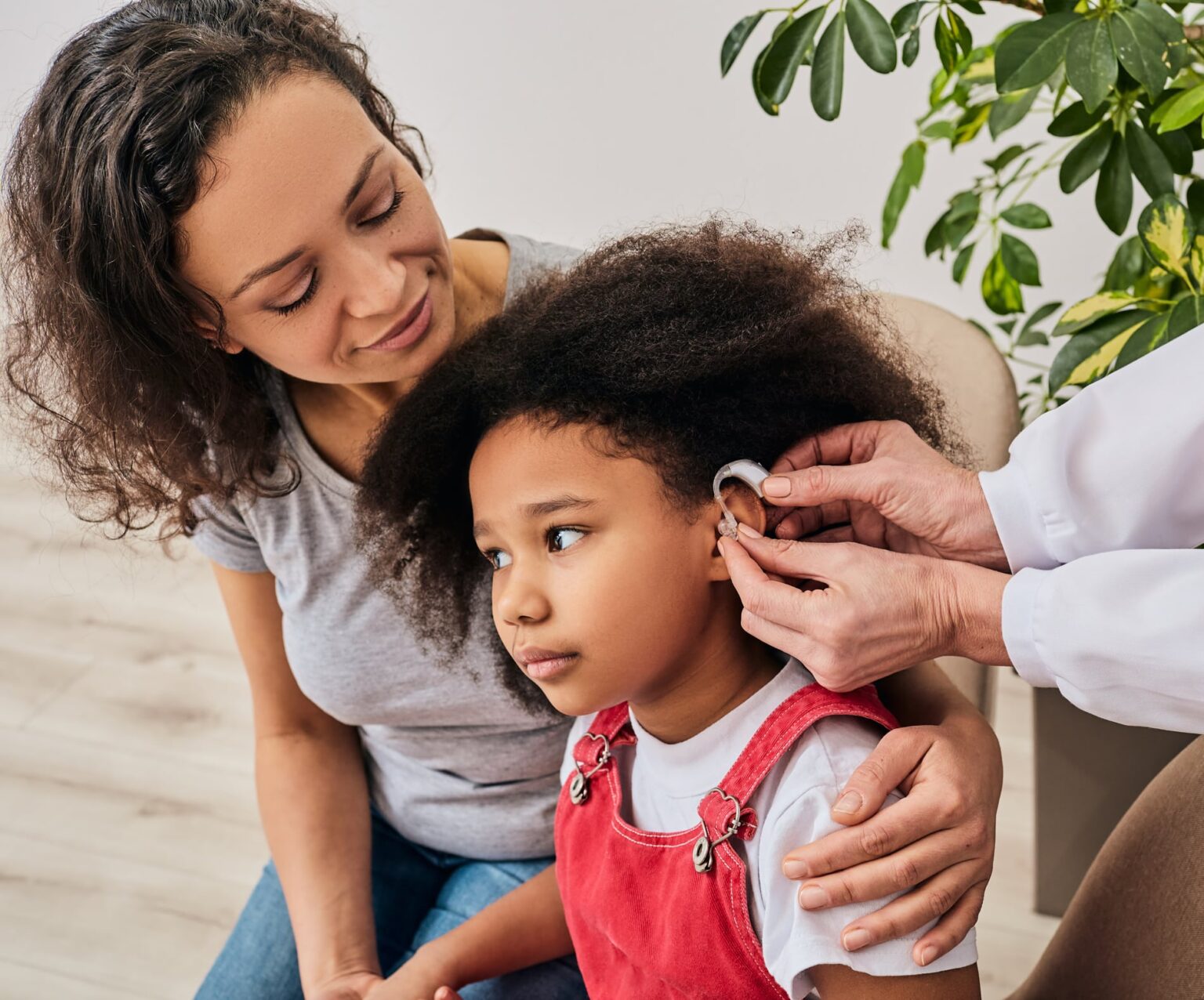While hearing loss is often associated with older age, anyone can develop the condition. If your child has hearing loss, you are probably curious to learn more about how pediatric hearing aids and how they work to help your child process sound.
Pediatric Hearing Aid Basics

While both pediatric and adult hearing aids work in the same way to amplify sounds, devices for children are designed to meet their specific needs in several ways.
- Smaller size. Perhaps most obviously, pediatric hearing aids are smaller because children’s ears are smaller.
- More colorful. While adults may prefer their hearing aids to look modern and monochromatic, children are drawn to bright colors and patterns. Having your child wear a hearing aid they think looks cool and fun will make them feel less shy about wearing them at school or while playing with friends on the playground at Chase Palm Park.
- Tamper-proof. If you have younger children, you’re aware of how curious they are. They will likely want to play with their hearing aids, which is why manufacturers have made sure that pediatric hearing aids are less likely to break into small, hazardous pieces. Similarly, many come with tamper-proof battery covers.
- Behind-the-ear. While adults have a variety of different styles to choose from, behind-the-ear (BTE) models are the most commonly recommended style of hearing aid for children. This is because the earmolds are easy to clean, comfortable for small ears, and easy to replace as your child grows.
- Large LEDs. Adults and teenagers with hearing loss can tell when their device isn’t functioning properly and either fix the problem themselves or contact their Audiologist for help. Young children may not be aware or be able to verbalize if their hearing aid stopped working. These lights can let parents and other caregivers know if there’s a problem.
The Importance of Treating Pediatric Hearing Loss
Treating hearing loss is important at any age. However, treating pediatric hearing loss as soon as it’s discovered is essential to your child’s development. Without hearing aids, your child will likely experience delays in speech, language and social skills that can put them at a serious disadvantage.
If you are concerned about your child’s hearing, contact Hearing Services of Santa Barbara today to speak with a specialist or schedule an appointment.